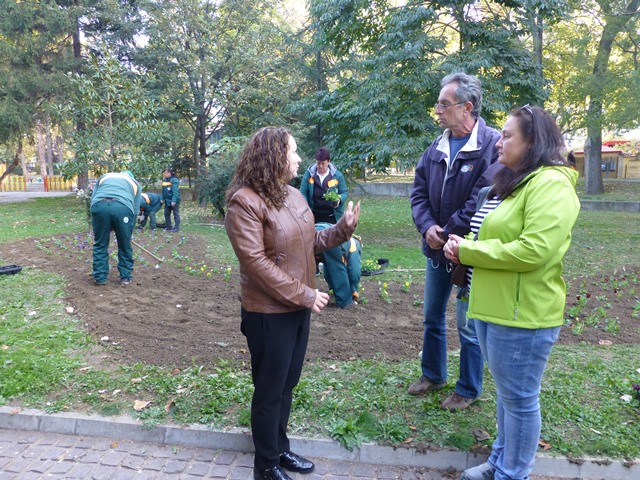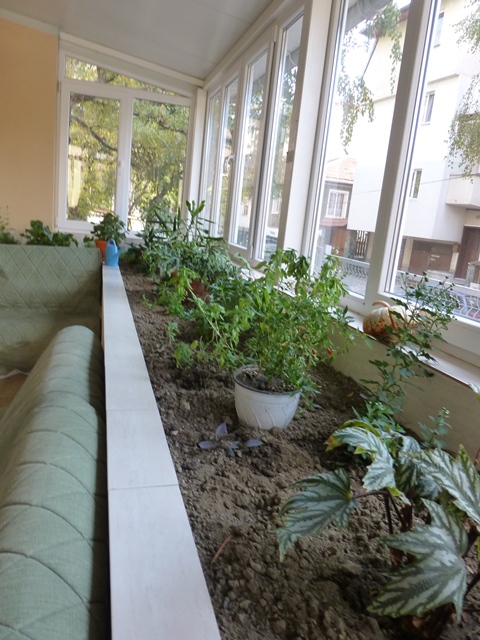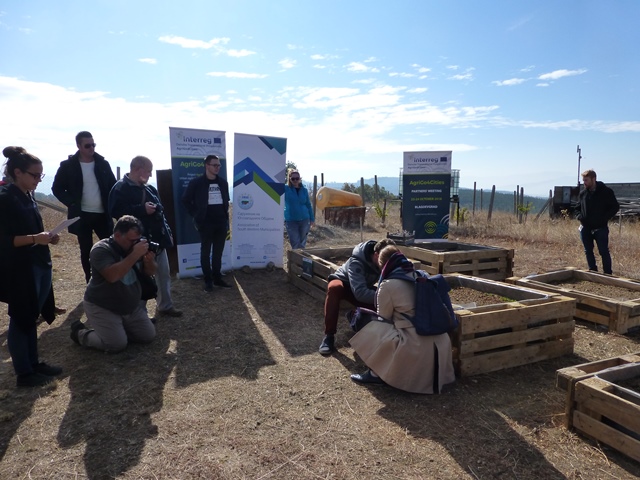AgriGo4Cities - STUDY VISIT BLAGOEVGRAD
20-12-2018
If you remember our article regarding the 5th Project Partner Meeting in Blagoevgrad, Bulgaria we talked shortly about some study visits that the whole AgriGo4Cities team enjoyed and which helped them to get to know some good examples of urban agriculture in Blagoevgrad.
One partner from AgriGo4Cities, the Institute for Environmental Planning and Spatial Development (Ifuplan), wrote a very interesting report about these study visits which we will summarize in this article.
The study visits consisted on visiting three good examples of urban gardening: a flower garden, a day care centre, and an experimental garden. The flower garden it does not represent classical urban agriculture features, and it is run by a municipal company called Biostroy which is related to the maintenance of public green areas and parks. The main aim of this garden is to employ vulnerable groups, such as Roma and long-term unemployed people, by giving them a useful task and a regular small income. Thus this flower garden deals with two main aspects, social and economic inclusion since it creates permanent social jobs for vulnerable people.
The second study visit was to the Zornitsa Day Care Centre, this centre is one of the first day care centres in Bulgaria which  offers all kinds of care and therapy for disabled children or with special needs. The fact that the centre has an indoor winter garden allows children to care about plants at the same time that strengthens their social skills, by transmitting to the children some gardening knowledge such as seeding, planting, growing, and harvesting.
offers all kinds of care and therapy for disabled children or with special needs. The fact that the centre has an indoor winter garden allows children to care about plants at the same time that strengthens their social skills, by transmitting to the children some gardening knowledge such as seeding, planting, growing, and harvesting.
The experimental garden called Dabrava peri-urban area of Blagoevgrad, is a garden planned jointly by the local partnership in Blagoevgrad pilot region. This peri-urban garden allows children from the Zornitsa Day Care Center and some groups of elderly people to grow plants and exchange experiences together; in this way elderly people can overcome loneliness by showing children gardening skills, and at the same time children learn from the elderly on how to plant and grow plants. The experimental garden Dabrava is located in a private area, and the owner allows the access to it. The garden is divided in two main parts, one in which can be found an orchard with almond trees, which each tree belongs to a child; an another part with plants growing in beds. 
The partner Ifuplan in its report provided an evaluation based on the SWOT analysis, which took into consideration these two questions: the role that the practice example can play for other pilot regions, and some recommendations that the group can give to the garden. Based on this, there are some positive and negative aspects highlighted, as well as some recommendations for improvement. Some positive aspects from the Flower Garden of the Municipal Company of Biostroy are its gender balance, its aesthetic aspect, and the social and economic inclusion of vulnerable groups. However, the small wages, the fact that the jobs provided are not evaluated and the top down of it are considered as negative aspects; although this could improve by allocating a garden in the park, running participatory processes, and letting temporarily employed people to teach the next group. Regarding the positive aspects of Zornitsa Day Care Centre it could be highlighted the therapeutic aspects, the fact that it is usable all year round, and the closeness of the garden to the users. Some negative aspects are the lack of space, the limited sort of plants, and the fact that only the children from the day centre enjoy this garden. Some suggestions to take into consideration are for instance diversifying the plants and inviting some people from outside the Day Care Centre to participate. Regarding the Experimental Garden, on the one hand needs to be highlighted the fact that children and elderly people are cooperating together in the garden, as well as the maintenance of it, and the open space; on the other hand, the accessibility, the fact that the garden is private and needs the visitors to be announced, are negative aspects. Some improvements could be considered for the experimental garden, such as creating a playground and improving the access for handicapped people.
This report shows that the Municipality of Blagoevgrad is very active in creating opportunities for vulnerable groups, although the urban gardening is new to the municipality, some good examples like the ones previously described can be found around the city.
